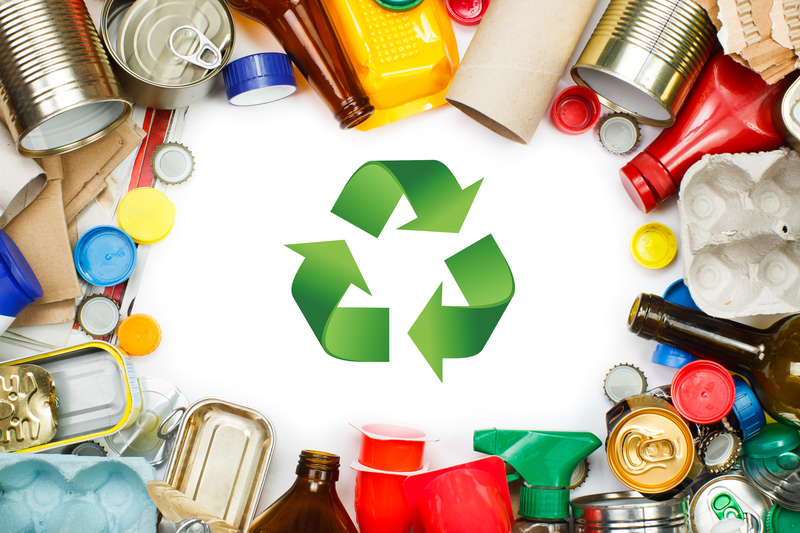Cutting Down on Waste: Smart Household Tips for a Greener Home
In today's world, cutting down on waste is not only a responsible environmental move but also a way to save money and live a healthier life. Modern households generate more waste than ever before, primarily due to excessive packaging, single-use items, and unchecked consumerism. Fortunately, there are countless smart tips and easy changes you can make to significantly reduce household waste. In this comprehensive guide, we'll share the most effective strategies, eco-friendly habits, and actionable advice to transform your home into a model of sustainable living.
Why Reducing Household Waste Matters
Before diving into specific tips, it is essential to understand why minimizing waste at home is crucial. Households are the primary source of municipal solid waste, contributing to overflowing landfills, pollution, and greenhouse gas emissions. By cutting down on waste in your daily routine, you actively decrease your carbon footprint, conserve resources, and help protect the planet for future generations.
- Saves money: Reducing, reusing, and recycling can decrease utility bills and shopping expenses.
- Improves environmental health: Less waste means fewer toxins and less pollution in our air, water, and soil.
- Boosts community well-being: Engaging in sustainable practices encourages others to follow suit, amplifying positive impact.

Smart Waste Reduction Practices for Every Home
Waste reduction starts with simple shifts in everyday habits. Here are actionable, smart tips for enthusiasts and beginners alike:
1. Adopt the 5 R's of Waste Management
- Refuse: Stop accepting unnecessary items such as promotional flyers, plastic straws, and single-use utensils.
- Reduce: Be mindful of the products you purchase. Opt for items with minimal or recyclable packaging.
- Reuse: Repair, repurpose, or donate items before discarding them. Reusable containers and bags are must-haves.
- Repurpose: Find alternate uses for items like glass jars, old clothes, or furniture rather than throwing them away.
- Recycle: Sort waste properly and ensure materials that can be recycled are placed in the correct bins.
2. Shop Smarter and Buy in Bulk
When you buy in bulk, you not only save money but also drastically cut down on packaging waste. Choose stores that allow you to bring your own containers and encourage bulk purchasing for items such as grains, nuts, and cleaning supplies.
- Choose loose produce over pre-packaged options.
- Avoid individually wrapped snacks and single-use containers.
- Support local markets and zero-waste stores.
3. Go Digital to Eliminate Paper Waste
Switching to digital alternatives is a simple strategy for households interested in reducing paper waste:
- Opt for digital receipts and statements.
- Cancel junk mail and subcribe to electronic newsletters.
- Use apps and online calendars instead of traditional paper planners.
4. Compost Kitchen and Yard Waste
Did you know that food scraps and yard waste make up more than 30% of what we throw away? Composting turns this organic matter into nutrient-rich soil, reducing the volume of garbage sent to landfills and creating a valuable resource for your gardens.
- Compost fruit and vegetable peelings, coffee grounds, eggshells, and garden clippings.
- Start with a countertop compost pail or an outdoor compost bin.
- Learn about proper composting techniques to avoid bad odors or pests.
5. Smart Food Planning and Storage
One of the leading causes of household waste is food spoilage. By planning meals and organizing your kitchen, you'll minimize excess and make the most of what you purchase.
- Create a weekly meal plan and stick to a shopping list.
- Use the first-in, first-out (FIFO) method to rotate pantry and fridge items.
- Store food properly with airtight containers to extend shelf life.
- Freeze leftovers for future meals instead of tossing them out.
Innovative Ways to Reuse and Repurpose at Home
Upcycle Household Items
Rather than throwing household items away, get creative with upcycling. Here are a few ideas to inspire your sustainable side:
- Transform glass jars into storage containers, flower vases, or candle holders.
- Turn old t-shirts into cleaning cloths or reusable shopping bags.
- Repurpose cardboard boxes as drawer dividers or craft organizers.
- Use plastic containers for seed starters or craft projects.
Host Swap Events
Declutter your home and support community sustainability by organizing clothing or toy swap events. This reduces unnecessary purchases and extends the life of items within your local area.
Zero Waste Cleaning: Greener Solutions for a Spotless Home
Traditional household cleaners frequently come with single-use packaging and harsh chemicals. For a better alternative, zero waste cleaning utilizes bulk ingredients and natural solutions.
- Mix your own cleaners using vinegar, baking soda, and essential oils.
- Buy cleaning supplies in bulk and refill reusable spray bottles.
- Swap paper towels for washable cloths or old t-shirts.
DIY Cleaning Recipe Example
All-purpose Cleaner: Mix 1 cup vinegar, 1 cup water, and a few drops of lemon essential oil in a glass spray bottle. Shake well and use on surfaces for a fresh clean without the waste.
How to Start Reducing Waste: Step-by-Step Approach
If you're feeling overwhelmed by the prospect of making your household waste-free, remember: every small step counts. With consistency, these changes become second nature. Here's a simple roadmap for smart waste reduction at home:
- Start with a waste audit: For a week, track what you throw away to identify the biggest sources of household waste.
- Set realistic goals: Decide on areas for improvement, such as reducing plastic, composting food waste, or lowering water usage.
- Make gradual changes: Choose one or two tips to implement at a time rather than overhauling your routine all at once.
- Educate and involve your family: The best results come when everyone participates and holds each other accountable.
- Regularly evaluate your progress: Review your habits monthly to see what's working and adjust as needed.
The Power of Mindful Consumption
Mindful consumption is at the heart of smart waste management at home. By being intentional about what you purchase, use, and dispose of, you decrease waste naturally.
- Ask yourself if you truly need an item before buying it.
- Borrow or rent items used infrequently, like tools or party supplies.
- Invest in higher quality, durable goods that last longer.
- Prefer experiences or digital gifts over physical presents.
Eco-Friendly Product Swaps
Looking for easy product swaps to instantly lower household waste? Consider replacing common disposable items with sustainable alternatives:
- Reusable silicone food storage bags instead of single-use ziplocks.
- Bamboo toothbrushes in place of plastic ones.
- Refillable water bottles and coffee cups rather than bottled water and disposable cups.
- Stainless steel or glass straws instead of plastic straws.
- Beeswax wraps in lieu of plastic wrap for food storage.
Dealing with Electronic and Hazardous Waste
Certain types of household waste, like electronics, batteries, or chemicals, need special handling. Disposing of these improperly poses risks to the environment and health.
- Drop off old electronics at certified e-waste recycling centers.
- Recycle batteries at dedicated drop-off points in shops or recycling centers.
- Safely dispose of leftover paint, pesticides, and chemicals according to local hazardous waste disposal guidelines.
By taking responsibility for your household's e-waste and chemicals, you play an essential role in protecting natural ecosystems.
Teaching Kids About Cutting Down on Household Waste
It's never too early to reinforce sustainable habits. Involve your children in waste reduction through fun, educational activities:
- Create crafts using recycled materials.
- Set up a family compost bin and track progress together.
- Make sorting waste into recycling a game with rewards.
- Encourage kids to donate toys and clothes they no longer use.
By making reducing waste fun and rewarding, children grow into eco-conscious adults, amplifying the long-term benefits of your efforts.

Benefits of Embracing Low Waste Living
Once smart waste reduction strategies become routine, the advantages quickly add up:
- Healthier living environment and improved air quality.
- Lower household expenses thanks to mindful consumption and less waste.
- Greater sense of personal satisfaction and community impact.
- Positive example for neighbors, friends, and future generations.
Conclusion: Small Steps, Big Changes
Cutting down on waste with smart household tips is an attainable goal for households of all sizes and lifestyles. Even one or two changes can create significant positive ripple effects--for your finances, neighborhood, and the planet. Remember, every sustainable habit counts. Commit today to reduce, reuse, and recycle, and encourage others to do the same. Together, we can foster a cleaner, greener, and more resilient future.
Ready to start your journey to a zero waste household? Save these tips, share with your family and friends, and take the first step towards effective waste reduction in your home today!